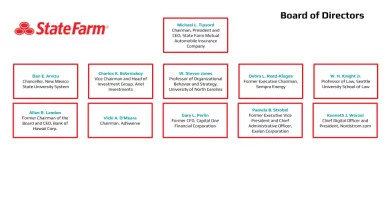Does exercise raise blood pressure

During exercise, your blood pressure, coupled with your pulse, increases to meet the heightened demand for blood flow in your active muscles.
Mechanism: Exercise triggers a temporary rise in blood pressure to facilitate the enhanced blood circulation required by working muscles.
Normal Response: This elevation is a normal physiological response and is generally not a cause for concern in healthy individuals.
Intensity Matters: The degree of blood pressure elevation can vary based on the intensity of the exercise. Vigorous activities may lead to a more pronounced increase.
Consultation: Individuals with existing cardiovascular conditions should consult their healthcare provider to determine appropriate exercise levels and monitor any potential impact on blood pressure.
Remember, regular physical activity remains a crucial component of a healthy lifestyle, and understanding its influence on blood pressure can contribute to a well-informed approach to fitness.
Contents
Does exercise increase blood pressure?

During exercise, your blood pressure, coupled with your pulse, increases to meet the heightened demand for blood flow in your active muscles.
Mechanism: Exercise triggers a temporary rise in blood pressure to facilitate the enhanced blood circulation required by working muscles.
Normal Response: This elevation is a normal physiological response and is generally not a cause for concern in healthy individuals.
Intensity Matters: The degree of blood pressure elevation can vary based on the intensity of the exercise. Vigorous activities may lead to a more pronounced increase.
Consultation: Individuals with existing cardiovascular conditions should consult their healthcare provider to determine appropriate exercise levels and monitor any potential impact on blood pressure.
Remember, regular physical activity remains a crucial component of a healthy lifestyle, and understanding its influence on blood pressure can contribute to a well-informed approach to fitness.
What is low blood pressure after exercise?

During exercise, your blood pressure, coupled with your pulse, increases to meet the heightened demand for blood flow in your active muscles.
Mechanism: Exercise triggers a temporary rise in blood pressure to facilitate the enhanced blood circulation required by working muscles.
Normal Response: This elevation is a normal physiological response and is generally not a cause for concern in healthy individuals.
Intensity Matters: The degree of blood pressure elevation can vary based on the intensity of the exercise. Vigorous activities may lead to a more pronounced increase.
Consultation: Individuals with existing cardiovascular conditions should consult their healthcare provider to determine appropriate exercise levels and monitor any potential impact on blood pressure.
Remember, regular physical activity remains a crucial component of a healthy lifestyle, and understanding its influence on blood pressure can contribute to a well-informed approach to fitness.
How much exercise should I do if my blood pressure is high?

During exercise, your blood pressure, coupled with your pulse, increases to meet the heightened demand for blood flow in your active muscles.
Mechanism: Exercise triggers a temporary rise in blood pressure to facilitate the enhanced blood circulation required by working muscles.
Normal Response: This elevation is a normal physiological response and is generally not a cause for concern in healthy individuals.
Intensity Matters: The degree of blood pressure elevation can vary based on the intensity of the exercise. Vigorous activities may lead to a more pronounced increase.
Consultation: Individuals with existing cardiovascular conditions should consult their healthcare provider to determine appropriate exercise levels and monitor any potential impact on blood pressure.
Remember, regular physical activity remains a crucial component of a healthy lifestyle, and understanding its influence on blood pressure can contribute to a well-informed approach to fitness.
Should high blood pressure during exercise be a warning signal?

During exercise, your blood pressure, coupled with your pulse, increases to meet the heightened demand for blood flow in your active muscles.
Mechanism: Exercise triggers a temporary rise in blood pressure to facilitate the enhanced blood circulation required by working muscles.
Normal Response: This elevation is a normal physiological response and is generally not a cause for concern in healthy individuals.
Intensity Matters: The degree of blood pressure elevation can vary based on the intensity of the exercise. Vigorous activities may lead to a more pronounced increase.
Consultation: Individuals with existing cardiovascular conditions should consult their healthcare provider to determine appropriate exercise levels and monitor any potential impact on blood pressure.
Remember, regular physical activity remains a crucial component of a healthy lifestyle, and understanding its influence on blood pressure can contribute to a well-informed approach to fitness.
How long does blood pressure stay elevated after exercise?

During exercise, your blood pressure, coupled with your pulse, increases to meet the heightened demand for blood flow in your active muscles.
Mechanism: Exercise triggers a temporary rise in blood pressure to facilitate the enhanced blood circulation required by working muscles.
Normal Response: This elevation is a normal physiological response and is generally not a cause for concern in healthy individuals.
Intensity Matters: The degree of blood pressure elevation can vary based on the intensity of the exercise. Vigorous activities may lead to a more pronounced increase.
Consultation: Individuals with existing cardiovascular conditions should consult their healthcare provider to determine appropriate exercise levels and monitor any potential impact on blood pressure.
Remember, regular physical activity remains a crucial component of a healthy lifestyle, and understanding its influence on blood pressure can contribute to a well-informed approach to fitness.
How much does exercise raise blood pressure?
During exercise, your blood pressure, coupled with your pulse, increases to meet the heightened demand for blood flow in your active muscles.
Mechanism: Exercise triggers a temporary rise in blood pressure to facilitate the enhanced blood circulation required by working muscles.
Normal Response: This elevation is a normal physiological response and is generally not a cause for concern in healthy individuals.
Intensity Matters: The degree of blood pressure elevation can vary based on the intensity of the exercise. Vigorous activities may lead to a more pronounced increase.
Consultation: Individuals with existing cardiovascular conditions should consult their healthcare provider to determine appropriate exercise levels and monitor any potential impact on blood pressure.
Remember, regular physical activity remains a crucial component of a healthy lifestyle, and understanding its influence on blood pressure can contribute to a well-informed approach to fitness.
Is it OK to exercise with high blood pressure?
During exercise, your blood pressure, coupled with your pulse, increases to meet the heightened demand for blood flow in your active muscles.
Mechanism: Exercise triggers a temporary rise in blood pressure to facilitate the enhanced blood circulation required by working muscles.
Normal Response: This elevation is a normal physiological response and is generally not a cause for concern in healthy individuals.
Intensity Matters: The degree of blood pressure elevation can vary based on the intensity of the exercise. Vigorous activities may lead to a more pronounced increase.
Consultation: Individuals with existing cardiovascular conditions should consult their healthcare provider to determine appropriate exercise levels and monitor any potential impact on blood pressure.
Remember, regular physical activity remains a crucial component of a healthy lifestyle, and understanding its influence on blood pressure can contribute to a well-informed approach to fitness.
Why does my blood pressure go down when exercising?
During exercise, your blood pressure, coupled with your pulse, increases to meet the heightened demand for blood flow in your active muscles.
Mechanism: Exercise triggers a temporary rise in blood pressure to facilitate the enhanced blood circulation required by working muscles.
Normal Response: This elevation is a normal physiological response and is generally not a cause for concern in healthy individuals.
Intensity Matters: The degree of blood pressure elevation can vary based on the intensity of the exercise. Vigorous activities may lead to a more pronounced increase.
Consultation: Individuals with existing cardiovascular conditions should consult their healthcare provider to determine appropriate exercise levels and monitor any potential impact on blood pressure.
Remember, regular physical activity remains a crucial component of a healthy lifestyle, and understanding its influence on blood pressure can contribute to a well-informed approach to fitness.
Should I worry if my blood pressure is 140 80?
During exercise, your blood pressure, coupled with your pulse, increases to meet the heightened demand for blood flow in your active muscles.
Mechanism: Exercise triggers a temporary rise in blood pressure to facilitate the enhanced blood circulation required by working muscles.
Normal Response: This elevation is a normal physiological response and is generally not a cause for concern in healthy individuals.
Intensity Matters: The degree of blood pressure elevation can vary based on the intensity of the exercise. Vigorous activities may lead to a more pronounced increase.
Consultation: Individuals with existing cardiovascular conditions should consult their healthcare provider to determine appropriate exercise levels and monitor any potential impact on blood pressure.
Remember, regular physical activity remains a crucial component of a healthy lifestyle, and understanding its influence on blood pressure can contribute to a well-informed approach to fitness.
What should I do if my blood pressure is 160 over 100?
During exercise, your blood pressure, coupled with your pulse, increases to meet the heightened demand for blood flow in your active muscles.
Mechanism: Exercise triggers a temporary rise in blood pressure to facilitate the enhanced blood circulation required by working muscles.
Normal Response: This elevation is a normal physiological response and is generally not a cause for concern in healthy individuals.
Intensity Matters: The degree of blood pressure elevation can vary based on the intensity of the exercise. Vigorous activities may lead to a more pronounced increase.
Consultation: Individuals with existing cardiovascular conditions should consult their healthcare provider to determine appropriate exercise levels and monitor any potential impact on blood pressure.
Remember, regular physical activity remains a crucial component of a healthy lifestyle, and understanding its influence on blood pressure can contribute to a well-informed approach to fitness.
Does drinking water lower blood pressure?
Drinking water plays a crucial role in maintaining normal blood pressure levels, but its direct impact on lowering blood pressure is contingent on hydration status.
Hydration and Blood Pressure: Adequate hydration helps regulate blood pressure, contributing to its normalization. However, simply drinking water may not actively reduce blood pressure unless dehydration is a factor.
Dehydration and Blood Volume: When dehydrated, the overall blood volume decreases as blood is composed of approximately 90% water. Rehydrating can restore blood volume, potentially leading to a lowering of blood pressure.
Caution: While staying well-hydrated is beneficial, other lifestyle factors also influence blood pressure. Individuals with persistent high blood pressure should consult a healthcare professional for a comprehensive approach to managing their condition.
Understanding the relationship between hydration and blood pressure can guide individuals in maintaining a healthy balance and overall well-being.
Understanding the Dynamic Link: Exercise and Blood Pressure
In conclusion, the relationship between exercise and blood pressure is a dynamic interplay integral to overall cardiovascular health. As we engage in physical activity, a temporary rise in blood pressure is a normal response, ensuring that the body meets the increased demand for blood flow in active muscles.
Understanding this physiological process is essential for individuals seeking to optimize their fitness routines while maintaining cardiovascular well-being. The intensity and duration of exercise can influence the extent of blood pressure elevation, emphasizing the importance of tailoring activities to individual health profiles.
It’s crucial to recognize that regular exercise remains a cornerstone of a healthy lifestyle, offering numerous benefits beyond the transient increase in blood pressure. As always, consulting with healthcare professionals is advisable, especially for those with pre-existing cardiovascular conditions, to ensure a safe and effective approach to physical activity.
In navigating the nuanced connection between exercise and blood pressure, individuals can make informed choices to support their overall health and vitality.





![PDF] Alcohol-induced hypertension: Mechanism and prevention. | Semantic Scholar](https://rainbowrunfarm.com/wp-content/uploads/2023/11/alcohol-and-hypertension-25-11-2023-18-39-54-390x220.webp)